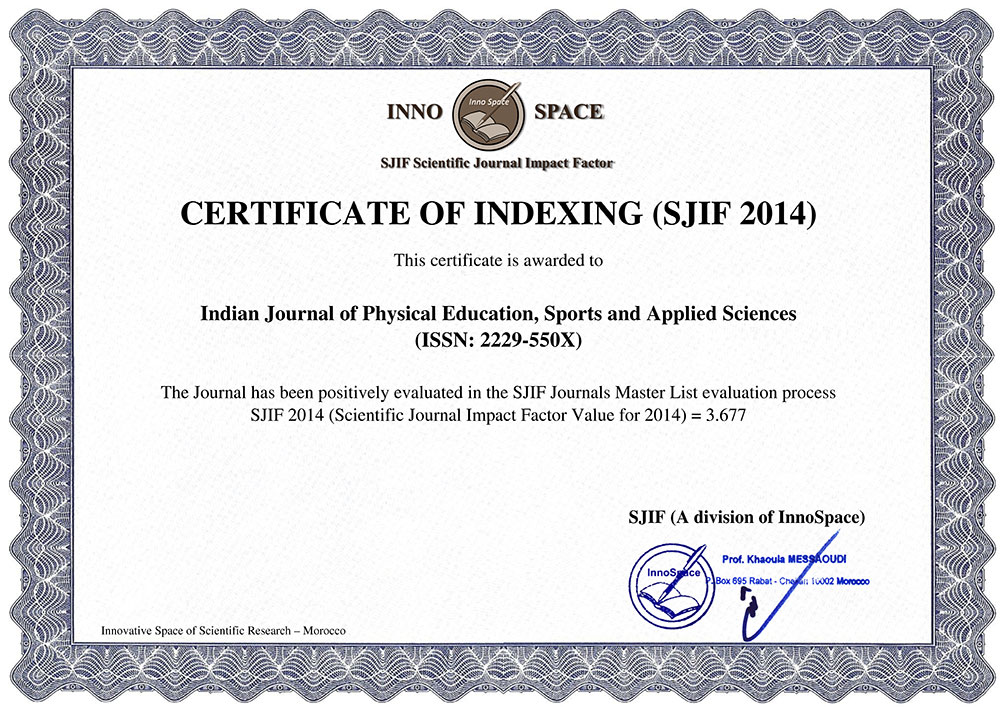A STUDY TO ASSESS THE EFFECTIVENESS OF VIDEO ASSISTED TEACHING PROGRAMME ON KNOWLEDGE REGARDING INFANTS CARE AMONG POST-NATAL MOTHERS IN SELECTED ANGANWADI’S OF JABALPUR CITY
2019, April, Volume 9-Number 2 May 9, 2019| Author name : | Mousmi Lendhe | ||||
|---|---|---|---|---|---|
| Page no : | 56-59 | Volume : | 9 | Issue : | 2 |
doi no.: 05-2016-44975451, DOI Link :: http://doi-ds.org/doilink/05.2019-95846539/
Mousmi Lendhe1
Affiliations
1 Principal: Nandvandan College of Nursing, Jabalpur, (M.P.)
ABSTRACT
The objective of the present study was to assess the effectiveness of video assisted teaching program on knowledge regarding infants care among post-natal mothers in selected Anganwadi’s of Jabalpur. A quantitative approach was used for the research, The research design adopted in this study was pre experimental one pretest and post-test design. 30 postnatal mothers who fulfilled the inclusion criteria were considered as the sample of the study. A 15 min. video assisted teaching program was developed by the researcher covering the contents to provide knowledge regarding infants care. Results revealed that mothers were having inadequate knowledge before administration of VAP, 86.67% mother were having inadequate knowledge, where as after administration of VAP 56% mothers knowledge was enhanced. T-test revealed the significance of difference between pre and post test scores, where obtained ‘t’ value 8.71 (df=29) was much higher than the required level of significance. Present study outcome shows the need for a better revamped awareness and education program coupled with effective health care delivery system to improve the level of knowledge among mothers on new born care, in achieving better health indicators as far as medical services are concerned.
Keywords: Effectiveness, Video assisted teaching program (VATP), practices, postnatal care.
DOWNLOAD FULL TEXT: 
BIBLIOGRAPHY
Devi, N.S. and Bhore, N. (2016), “To prepare and test effectiveness of video assisted teaching programme on practice regarding postnatal care”. Researchgate, 1(4):20–3.
Maaløe N, Housseine N, Bygbjerg IC, Meguid T, Khamis RS, Mohamed AG, et al. (2016), “Stillbirths and quality of care during labour at the low resource referral hospital of Zanzibar: a case-control study”. BMC Pregnancy Childbirth [Internet]. BioMed Central;, 16(1):351.
Namrata, D. and Uma, K. (2002), “A study to assess the effectiveness of structured teaching program on knowledge regarding prevention of household injuries among the mothers” Unique Journal of Medical and Dental Sciences , 2:147–50.
Strauss, R.S. and Dietz, W. H. (2019), “Low maternal weight gain in the second or third trimester increases the risk for intrauterine growth retardation”. J Nutr [Internet]. 129(5):988–93. Available from: http://www.ncbi.nlm.nih.gov/pubmed/10222390
WHO (2003). Working with Individuals, Families, and Communities. Geneva: WHO.







